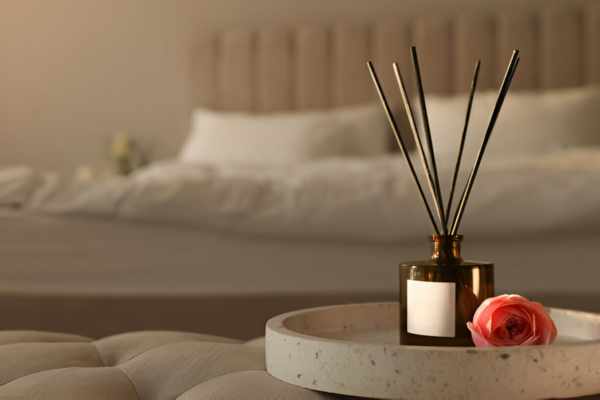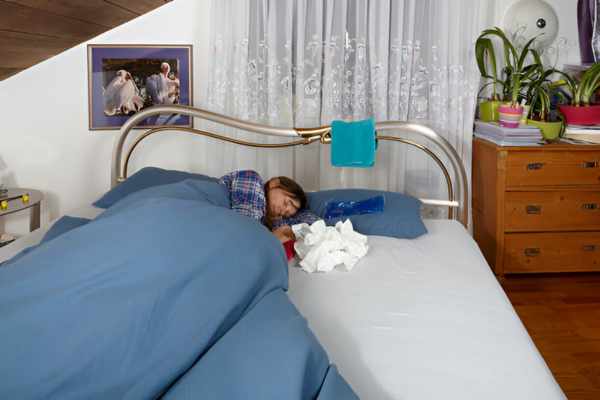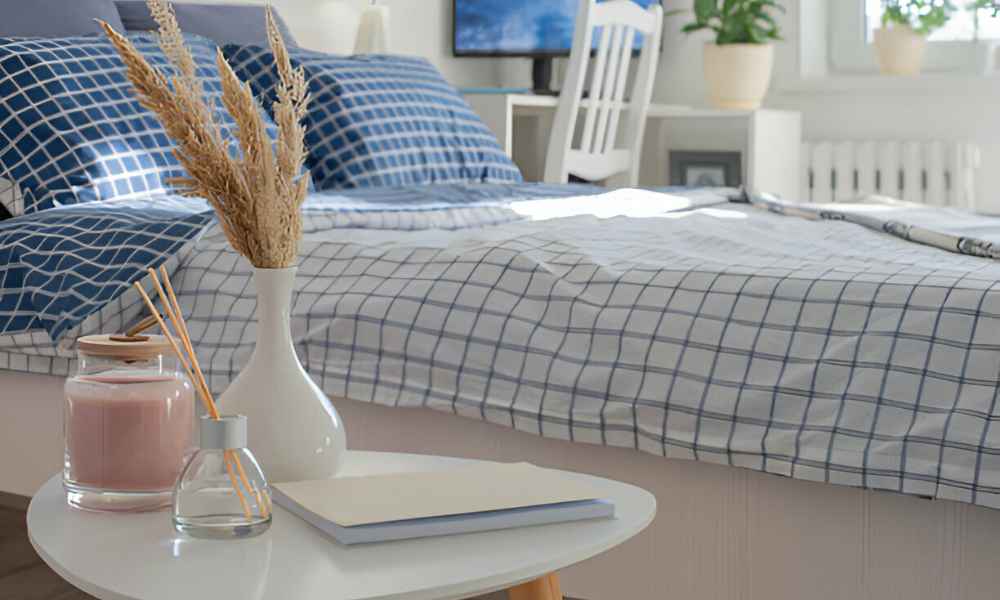Walking into a bedroom that has an unpleasant odor can be quite off-putting. If you’re frequently asking yourself, “Why does my bedroom smell?” you’re not alone. Various factors, from damp laundry to pet dander, can contribute to this common issue. In this article, we’ll explore the root causes of persistent bedroom odors and provide practical solutions to freshen up your space. Whether it’s due to poor ventilation, mold growth, or hidden spills, understanding the source is the first step towards a fresher, cleaner bedroom. Join us as we delve into effective strategies to eliminate unwanted smells and enhance the overall ambiance of your personal retreat.
Sources of Bedroom Odors

One might often wonder, “Why does my bedroom smell?” when encountering unpleasant odors upon entering their personal space. Common culprits include dirty laundry, which can harbor bacteria and mildew, especially when left damp. Bedding, too, absorbs sweat and oils from the skin, requiring regular washing to maintain freshness. Carpets can trap dust, allergens, and accidental spills, gradually releasing odors over time. Additionally, pets can leave behind dander and scents from their fur and paws, which become more noticeable in enclosed spaces like bedrooms. Identifying these sources is crucial in addressing and ultimately eliminating the unwanted smells that disrupt the comfort of your bedroom.
Poor Ventilation
Poor ventilation is a common culprit behind the lingering question, “Why does my bedroom smell?” When airflow in a room is restricted, it creates an environment where stale air circulates, trapping odors and allowing bacteria to thrive. These bacteria are often responsible for the musty or sour smells that can pervade a space. Additionally, inadequate ventilation prevents fresh air from diluting and removing odor particles, causing them to accumulate over time. To combat this, ensure your bedroom has sufficient air exchange by using fans, opening windows when possible, and checking that vents are unblocked. Enhancing ventilation not only clears odorous air but also contributes to a healthier living environment.
Mould and Mildew Issues

Mold and mildew thrive in environments where moisture and warmth combine, making your bedroom a potential hotspot if conditions align. Particularly in humid climates or areas with poor ventilation, these fungi can flourish, contributing to a musty, unpleasant odor. Bedrooms with limited airflow and high humidity levels are especially prone to these issues. Common contributors include damp walls, wet laundry left out, or condensation from windows. To combat these smells, it’s essential to regulate humidity levels, improve air circulation, and address any water leaks or condensation issues promptly. Managing these factors not only helps eliminate odors but also protects your health by reducing allergens and irritants associated with mold and mildew.
Pet Odours
Pets often bring joy and companionship to our lives, but they can also be the culprits behind those mysterious bedroom odors. From pet dander to accidents on the carpet, our furry friends can inadvertently affect the freshness of our living spaces. To maintain a pet-friendly yet odor-free bedroom, regular grooming of your pet is essential. Additionally, invest in washable pet bedding and clean it frequently. Using an air purifier can also help capture pet dander and reduce airborne odors. For immediate freshness, sprinkle baking soda on carpets before vacuuming to absorb odors. These simple steps can significantly improve the air quality in your bedroom, making it a more pleasant space for both you and your pets.
Hidden Food and Spills

Unnoticed food spills and hidden snack stashes in your bedroom can be a sneaky source of persistent odors. Over time, these forgotten crumbs and residues can decay, attracting pests and producing a musty, unpleasant smell that permeates the space. It’s essential to regularly clean under furniture and in hard-to-reach areas where food particles tend to accumulate. Implementing a no-food policy in the bedroom can also prevent future incidents. By taking proactive steps to keep your sleeping area free from food and spills, you can maintain a fresher, cleaner environment that’s conducive to relaxation and good health.
Chemical Sources

Many bedroom odors stem from chemical sources, particularly volatile organic compounds (VOCs) emitted by everyday items. Furniture, fresh paint, and even some cleaning agents can release these odor-causing chemicals into the air. VOCs are not only unpleasant to smell but can also affect indoor air quality and your health. To minimize their impact, opt for low-VOC or VOC-free paints and finishes when decorating or renovating your bedroom. Additionally, using natural or eco-friendly cleaning products can help reduce the presence of harsh chemicals. By making informed choices about the products you bring into your bedroom, you can significantly improve both the smell and the safety of your personal space.
Practical Cleaning Tips
Keeping your bedroom fresh and odor-free involves more than just regular cleaning; it requires targeted strategies for each element within the room. Start by washing bedding weekly in hot water to eliminate sweat and skin flakes that attract dust mites and produce odors. For carpets, sprinkle baking soda, let it sit overnight, and vacuum it up the next day to absorb lingering smells. When it comes to furniture, use a vinegar-water solution to wipe down non-fabric surfaces. For upholstered items, consider steam cleaning or a fabric-specific cleaner to tackle deep-seated odors. These practical cleaning tips will help maintain a clean, inviting bedroom atmosphere, minimizing unpleasant smells effectively.
Professional Solutions

When persistent odors linger in your bedroom despite thorough cleaning, it might be time to call in professional cleaners. Experts in odor removal can identify and eliminate deep-seated sources of smells that typical household cleaning methods can’t address. Additionally, if you detect a musty smell that suggests mold or mildew, professional mold remediation is crucial. These specialists not only remove mold but also address the underlying moisture issues that cause its growth, ensuring a healthier environment. Investing in professional services ensures that your bedroom remains a fresh and inviting space, safeguarding both your comfort and health.
Prevention Strategies
Preventing unpleasant odors in your bedroom is key to maintaining a fresh and inviting atmosphere. Regular cleaning schedules are crucial; frequent vacuuming, dusting, and laundering of bedding can significantly reduce odor buildup. Incorporating air purifiers or dehumidifiers into your room can also play a vital role. Air purifiers help filter out particulate matter and allergens that can contribute to odors, while dehumidifiers reduce humidity levels, discouraging the growth of mold and mildew. Additionally, opening windows regularly to allow fresh air circulation can naturally dispel odors, keeping your bedroom smelling clean and fresh consistently. By adopting these strategies, you can ensure your bedroom remains a pleasant, odor-free sanctuary.
FAQs on“Why Does my Bedroom Smell?”
1. What are common reasons my bedroom smells?
✅Bedrooms can develop odors from mold, mildew, dirty laundry, or poor ventilation, among other causes.
2. How can I identify the source of a bedroom odor?
✅Check for damp areas, look under furniture, and sniff around to isolate the smell. Often, hidden mold or old spills are the culprits.
3. What are quick fixes to improve my bedroom’s smell?
✅Open windows to air out the room, use baking soda on carpets, and wash bedding and curtains regularly.
4. Can houseplants help reduce odors in my bedroom?
✅Yes, some houseplants like peace lilies and English ivy can naturally purify air and reduce odors.
5. When should I consider professional help for bedroom odors?
✅ If the smell persists despite thorough cleaning, or if you suspect mold growth that you can’t manage, it’s wise to call a professional.
Conclusion
To effectively address the question, “Why does my bedroom smell?” it is essential to identify and remedy the root causes. Whether it’s inadequate ventilation, hidden mold, or accumulated dirt, each issue requires specific solutions. Regular cleaning, proper airflow, and the use of natural odor eliminators can significantly improve your bedroom’s atmosphere. Remember, a fresh-smelling bedroom not only enhances your comfort but also promotes healthier sleep. If the problem persists, don’t hesitate to seek professional advice. Taking these steps will ensure your bedroom remains a pleasant and inviting space, free from unpleasant odors.

